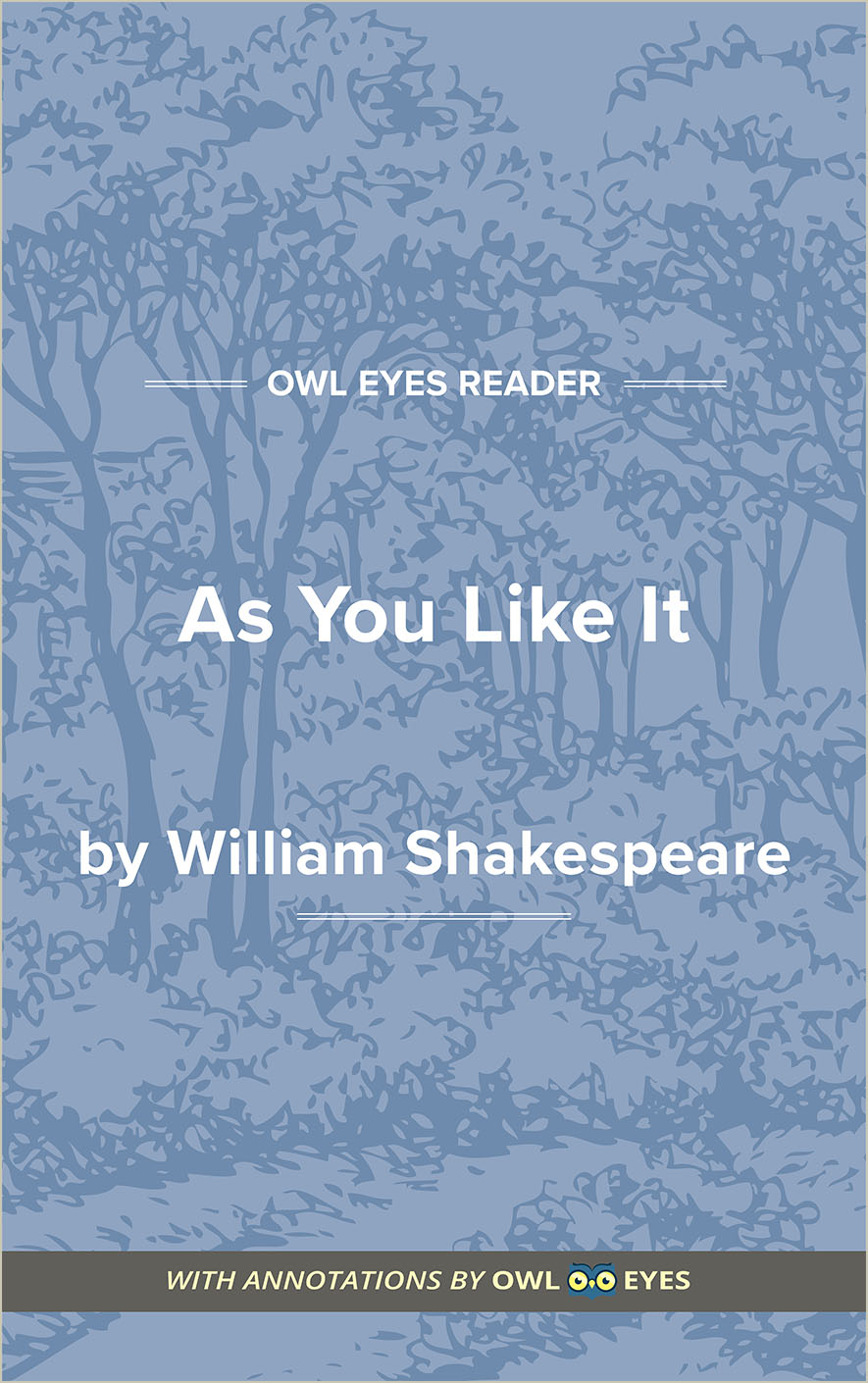Analysis Pages
Irony in As You Like It
Irony Examples in As You Like It:
Act I - Act I, Scene 3
🔒"Beauty provoketh thieves sooner than gold. ..." See in text (Act I - Act I, Scene 3)
"Thou art a fool..." See in text (Act I - Act I, Scene 3)
Act III - Act III, Scene 1
🔒"More villain thou..." See in text (Act III - Act III, Scene 1)
Act IV - Act IV, Scene 1
🔒"And I am your Rosalind...." See in text (Act IV - Act IV, Scene 1)
Act IV - Act IV, Scene 3
🔒"Can a woman rail thus? SILVIUS. Call you this railing?..." See in text (Act IV - Act IV, Scene 3)
"For well I know he was unnatural...." See in text (Act IV - Act IV, Scene 3)

